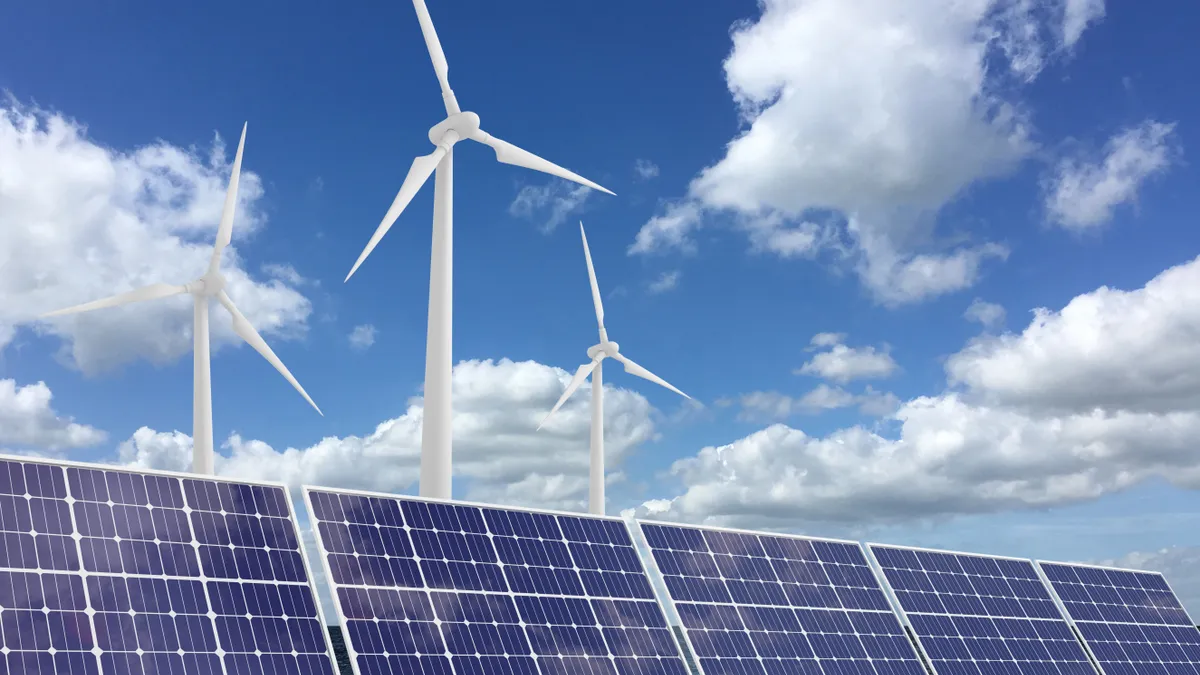Dive Brief:
- Liquid metal battery manufacturer Ambri will deploy its first 300-kWh utility pilot system during the first quarter of 2024, a key step towards commercialization, the startup said last week.
- Originally slated to begin in 2022, the pilot project with Xcel Energy in Colorado was delayed by setbacks unrelated to the novel battery technology, said Adam Briggs, chief commercial officer for Ambri.
- The company has successfully tested a smaller system at a Microsoft data center and is planning a gigawatt-scale manufacturing plant to meet demand from a growing number of prospective clients, Briggs said.
Dive Insight:
There’s probably never been a better time to work for an energy storage startup, Briggs said. But the past year has been tumultuous for the battery industry, leading to delays for Ambri’s headlining utility pilot with Xcel.
The company had to spend six months redesigning its battery management systems as a result of the computer chip shortage, Briggs said. It’s also grown from 50 employees to 175 — and hiring took longer than expected. That and a myriad of other small challenges contributed to delays on the Xcel pilot, he said.
But other projects by the company are proceeding apace, Briggs said. The technology to be piloted by Xcel is the second generation of the company’s antimony-based liquid metal battery, which does not require cooling or rare minerals such as lithium. But the company’s engineers are already working on a third generation battery that will increase the capacity of their battery container units from the current 300 kW to about a megawatt each, he said.
The company is also building a pilot manufacturing facility in Massachusetts, and is looking at sites for its first full-scale manufacturing plant, which Briggs said the company hopes to build in the U.S. Ambri aims to have the first phase of the plant, which will have the capacity to build 1 GW of battery units per year, operational by the third quarter of 2025. The company is also in talks with potential partners about joint manufacturing ventures overseas, Briggs said.
The Inflation Reduction Act, Briggs estimated, has increased demand for large-scale energy batteries by about 35% to 50%, regardless of where the batteries are made because it improves the business case for companies that want to install, own and operate a battery system. Then the lithium price spikes of the last year increased interest in alternative battery technologies.
“Right now the biggest issue with non-lithium technologies is that they are not proven,” Briggs said. “But once these pilot systems demonstrate that this technology is operating as expected, there will be a preference for non-lithium ion technologies because you won’t be competing against EVs for that same volume of batteries. Demand for EVs is 15 times the demand for batteries for large scale storage ... so if you’re a company out there and you want to do a large storage system in California, one of the things you have to worry about is if you can get your batteries. And this is less of an issue if you are buying a non-lithium ion battery.”
Briggs said that Ambri has lined up a substantial pipeline of initial agreements with potential customers looking to buy their batteries once the company begins commercial production.
“There is just so much interest in batteries, and it is a super fun time to be in batteries,” Briggs said.













